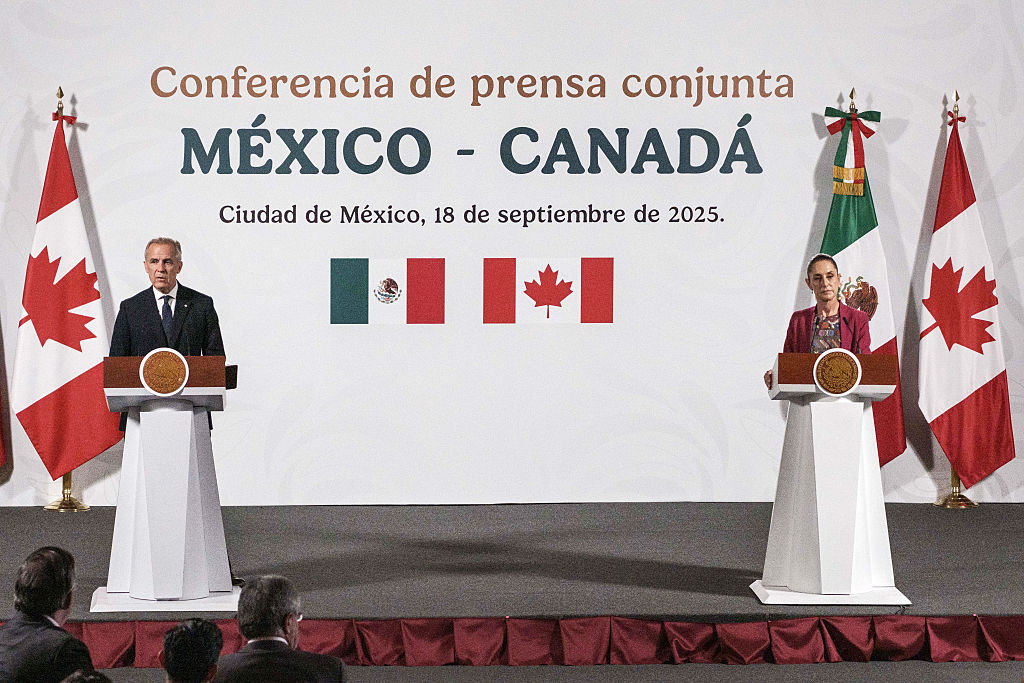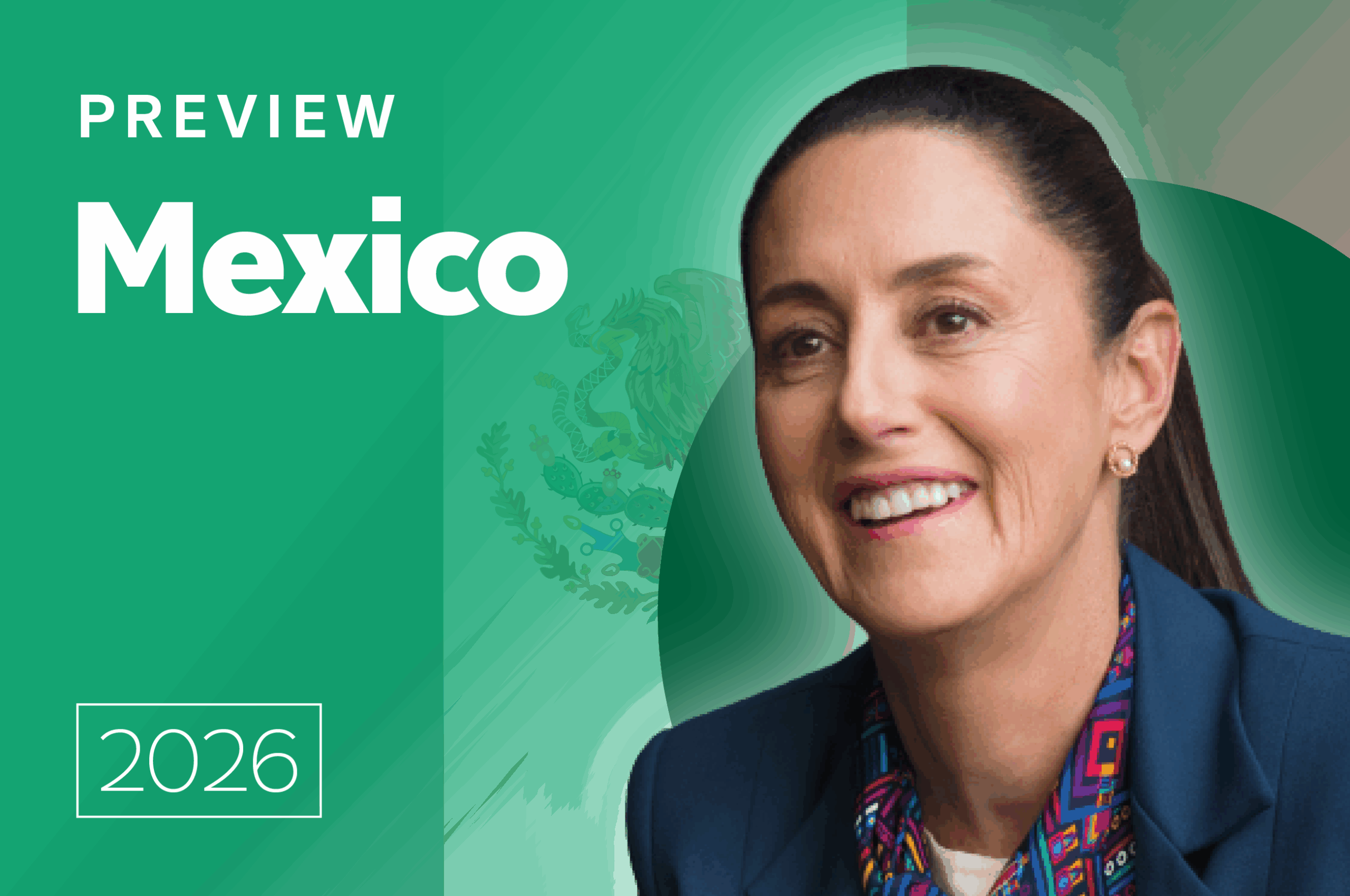Colombia in the Eyes of Wall Street: International Contagion and Domestic Recovery
Colombia in the Eyes of Wall Street: International Contagion and Domestic Recovery
In the thirteenth AS/COA Bogota Conference, President Álvaro Uribe talked about his government's efforts to build confidence in the face of global economic challenges. Panelists also offered insight into financial and energy issues.
Keynote Speakers:
- Álvaro Uribe Velez, President of Colombia
- Oscar Iván Zuluaga, Minister of Finance
- María de Rosario Guerra, Minister of Communications
- Enrique García, President Corporación Andina de Fomento (CAF)
- Sergio Clavijo, President, ANIF
- Roberto Steiner, Director, Fedesarrollo
- Susan Segal, President and CEO, Americas Society/Council of the Americas
Conference Panelists:
- Drausio Giacomelli, Head of Emerging Markets Strategy, Deutsche Bank
- Luis Oganes, Head for Latin America, Emerging Markets Research Group, JPMorgan Chase & Co.
- Erich Arispe, Director, Sovereign Ratings, Fitch Ratings
- Víctor Traverso, Director, Corporación Andina de Fomento (CAF)
- Ali Moshiri, President Chevron Latin America and Africa
- Javier Gutiérrez, Presidente y CEO, Ecopetrol
- Armando Zamora, Presidente Agencia Nacional de Hidrocarburos
Summary
The Americas Society and Council of the Americas hosted its thirteenth Bogotá Conference, “International Contagion and Domestic Recovery” on June 17, 2008. The Conference, coorganized with ANIF and Fedesarrollo, examined Colombia’s growth prospects in today’s challenging global environment. Speakers and panelists included government ministers, Wall Street analysts and senior-level executives of multinational corporations. Participants assessed Colombia's macroeconomic outlook, investment climate, and energy prospects.
Remarks by President Álvaro Uribe
In his keynote speech, President Álvaro Uribe said that during the current difficult times his government is working to build “confidence”—the word he said best describes the efforts of his administration. Confidence, he said, rests on democratic security, socially responsible investment, and a policy of social cohesion. Security brings investment, which in turn creates wealth and helps to eliminate poverty.
Uribe added that his government policies had given a boost to foreign direct investment (FDI) in Colombia. For example, the country’s rate of FDI climbed from $700 million in 2001 to $10.5 billion in 2008. Because of the economic downturn, Colombia has experienced a decrease in FDI and less revenue from taxes. Uribe therefore has proposed a new tax reform, to be discussed in Congress starting July 20. The reform’s goal is to guarantee funding for the continuity of the security policies of his administration, which have been successful in helping the country’s economic growth.
Colombia in the Eyes of Wall Street
Speakers addressed the impact of the global slowdown on Latin America’s economy, and Colombia’s in particular. Most agreed it was likely to shrink in 2009. JPMorgan forecasts a contraction of 2.9 percent for Latin American and 0.5 percent for Colombia.
Although Colombia has been relatively well prepared to cope with the crisis and growth projections for next year are in the positive territory (3 percent, according to JPMorgan), concerns remain about the growing fiscal deficit. The president’s tax reform proposal was well received by ANIF’s Sergio Clavijo and Fedesarrollo’s Roberto Steiner. However, Clavijo emphasized that any changes in the law had to be structural. He proposed a more technical approach to the current regime by eliminating the financial transaction tax and FDI tax exemptions while expanding the high net worth tax contributors’ base.
Along these lines, Fitch’s Erich Arispe explained that one of the reasons Colombia didn’t have a better sovereign rating was because the government financial deficit was above the regional average. He agreed with other analysts in saying that Colombia could implement some countercyclical fiscal policies like the tax reform, but agreed with JPMorgan’s Luis Oganes that this would be difficult as the 2010 presidential race warms up.
Speakers also voiced concern aboutt Colombia’s current account balance. The United States, Venezuela, and Ecuador remain the country’s largest trading partner. For Deutsche Bank’s Drausio Giacomelli, Colombia’s export base is too narrow and concentrated, as evidenced by the 9.2 percent year-on-year drop in exports experienced in March and the 13.2 percent decline experienced this year to date. He believes that the country should do more to diversify its markets.
Latin American Energy Prospects
The panel’s speakers highlighted one of the main problems facing Latin America nowadays: the lack of energy interconnectivity. Chevron’s Ali Moshiri said that Latin America had abundant natural resources but lacked a common energy policy, which hindered the region’s energy growth potential. Pipeline networks are scarce, he said, and he cited Central America as an example in that it imports excessive fossil fuels to generate electricity when this could be achieved more cheaply, efficiently and cleanly using natural gas.
Ecopetrol’s Chief Executive, Javier Gutierrez, agreed with Chevron’s Ali Moshiri that strengthening Latin America’s interconnectivity would improve energy efficiency in the region. He believes political obstacles and tensions can be overcome, pointing to the gas pipeline between Colombia and Venezuela as an example. The pipeline "is a good experience that, despite political relations, has been a successful project," he said.
Gutierrez also described Ecopetrol’s growth and plans for the future. He affirmed that the company stands financially well positioned to undertake new exploration and he is confident that new oil can be found in Colombia. The National Hydrocarbon Agency’s Armando Zamora, who mentioned that several contracts had been awarded in Colombia, supported this sentiment. Those contracts include promising blocks in “los Llanos Orientales” in the east of the country, as well as offshore blocks in the Caribbean. Brazil's Petrobras and Australia's BHP Billiton have also been awarded contracts for offshore exploration in the Caribbean.








